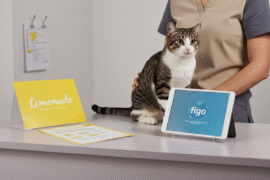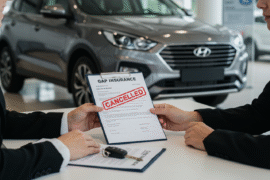This article may contain references to products or services from one or more of our advertisers or partners. We may receive compensation when you click on links to those products or services. Nonetheless, our opinions are our own.
The information presented in this article is accurate to the best of our knowledge at the time of publication. However, information is subject to change, and no guarantees are made about the continued accuracy or completeness of this content after its publication date.

Updated by Albert Fang
It’s common for insurers to combine different insurances in a single contract. They call this type of policy the Businessowners Policy (BOP), a language coined by Insurance Services Office (ISO) experts. This contract covers liability and property insurance risks and other additional coverages.
The BOP is also known as business interruption insurance or business income insurance. This insurance type compensates business owners for disaster-related income losses. Since it’s common for disasters to disrupt business operations and vacate their premises, insurers cover any extra expenses that may be incurred. This situation is especially true when the business needs to relocate.
If you’re starting a small enterprise, here are the small business insurance basics you need to know to operate seamlessly. When you insure your business, you won’t worry much about the risks. More than just boosting business performance, it will help you secure its future. You’ll be prepared to face challenges up ahead. Read on to learn more.
Small Business Insurance: Is it different from other insurance types?
As the name suggests, small business insurance suits businesses under certain parameters. According to the US Small Business Association (SBA), these businesses fall under a specific annual receipt cap. It also includes companies with less than 50 employees.
Smaller businesses experience more risks compared to companies belonging to the Fortune 500. Apart from that, the average cost of property damage or customer injury claim is $30,000. These are enough reasons small businesses should get the insurance fit for them.
While the purpose of insurance for all types of businesses or beneficiaries is the same, they differ in the specifics of the coverage. You need to know the difference between these types of insurance to figure out what’s best for your company.
What are the leading insurance types?
Generally, there are four types of insurance for small businesses. Your business can save on insurance costs if you get a packaged policy. You can bundle three or more insurance coverages like commercial property, business income, and general liability insurance with your BOP. Different insurance companies also offer industry-specific packaged policies.
Find out the different small business insurance requirements from your prospective insurance provider. However, before that, you must know what insurance to apply for. Here are the main types of insurance to help you choose what fits your business.
Property insurance
This kind of insurance compensates businesses when the property they’re using gets damaged or lost due to specific perils like theft or fire. In these cases, the said insurance covers the structure or building. They also insure personal properties within the building, such as computers, machinery, raw materials, inventory, and office furnishings.
Depending on your policy, your business property insurance could include coverage for the following:
- Equipment breakdown
- Debris removal after a destructive event
- Other kinds of water damage
- Other related losses
Liability insurance
An injured customer can sue any enterprise. The former can claim that the latter is the reason for and cause of the harm. The injured party can also allege that a service error or product defect created a dangerous environment.
The customers can also submit proof that the business owners were negligent. Furthermore, the former can assert that such negligence is equivalent to disregarding another’s property or safety. The liability insurance you purchased will answer for all proven damages.
If the court finds your business guilty of the injury, the liability insurance can include payments for all legal defense expenses. It will also pay for the injured party’s medical bills.
Business auto insurance
You must get a business auto insurance policy if your business owns motor vehicles. This policy will cover damages to third parties. Suppose one of your vehicles hit a pedestrian. Your auto policy will pay for the pedestrian’s medical expenses in that case. If there are damaged properties, your insurance will also pay for them. The payment will be within policy limits.
Worker’s compensation insurance
In all US states except Texas, the law requires workers for companies with specific employee counts to have workers’ compensation insurance. The required employee count is usually within three to five. The specifics vary by state.
If you have workers’ compensation insurance, you won’t have trouble paying for the injured worker’s medical care. The same compensation will also cover some of the employee’s lost wages. A fault will be immaterial here since the insurance will pay for related injuries.
You might not need this insurance if you run your business with one to two people working from home. In this case, you’ll need the standard homeowners’ policy.
Voted "Best Overall Budgeting App" by Forbes and WSJ
Monarch Money helps you budget, track spending, set goals, and plan your financial future—all in one app.
Get 50% OFF your first year with code MONARCHVIP
What are other kinds of business coverage?
You already know what small business insurance is. Aside from the four main types of insurance for small businesses mentioned above, you should consider other types of business coverage.
Omissions and errors insurance
Also known as professional liability, this insurance policy pays for court judgments that render the insured legally liable for injury-resulting errors. You are particularly vulnerable if your business offers advice, provides care, designs, or makes recommendations.
As you execute your duties, you cause harm to your customer, and this harm could lead to litigation against you. Any damage the court awards will be paid by your insurer. The same insurance may also cover legal defense costs even without wrongdoing.
Key employee insurance
This type of insurance policy is common for businesses with employees who are integral to the company. If the employee is in an accident or dies, the essential employee insurance coverage will cushion the adverse financial effects on the business.
Umbrella policies
As its name suggests, this policy offers coverage beyond the company’s standard liability coverage. This contract aims to protect the business from debilitating business losses. If you’re a typical business, this policy could help you recover losses beyond your standard auto and general liability policies.
Insurance Costs
You may be interested in getting insured, but you may need to find out if you can afford it. If you’re having that dilemma, it’s good to know the benchmark pricing for these different kinds of insurance coverages. The cost varies depending on the insurer and the business. However, here are the average prices you can review.
- BOP: $261 per month or $ 3,125 per annum
- General liability: $88 per month or $1,057 per annum
- Workers’ compensation: $70 per month or $840 per annum

Protect Your Business By Getting Insured
Change is one of the few things certain in this world. Your business may be doing well today, but an unforeseen event might hit you tomorrow. Don’t let these uncertainties topple you down — you can always prepare for what’s coming.
You can protect your business from painful losses by insuring it today. As most people would say, “Prevention will always be way better than a cure.”

Reviewed and edited by Albert Fang.
See a typo or want to suggest an edit/revision to the content? Use the contact us form to provide feedback.
At FangWallet, we value editorial integrity and open collaboration in curating quality content for readers to enjoy. Much appreciated for the assist.
Did you like our article and find it insightful? We encourage sharing the article link with family and friends to benefit as well - better yet, sharing on social media. Thank you for the support! 🍉
Article Title: Understanding the Basics of Small Business Insurance
https://fangwallet.com/2023/05/30/understanding-the-basics-of-small-business-insurance/The FangWallet Promise
FangWallet is an editorially independent resource - founded on breaking down challenging financial concepts for anyone to understand since 2014. While we adhere to editorial integrity, note that this post may contain references to products from our partners.
The FangWallet promise is always to have your best interest in mind and be transparent and honest about the financial picture.
Become an Insider

Subscribe to get a free daily budget planner printable to help get your money on track!
Make passive money the right way. No spam.
Editorial Disclaimer: The editorial content on this page is not provided by any of the companies mentioned. The opinions expressed here are the author's alone.
The content of this website is for informational purposes only and does not represent investment advice, or an offer or solicitation to buy or sell any security, investment, or product. Investors are encouraged to do their own due diligence, and, if necessary, consult professional advising before making any investment decisions. Investing involves a high degree of risk, and financial losses may occur including the potential loss of principal.
Source Citation References:
+ Inspo












































